Meet TEDxKPU's Speakers:
Amit Sandhu | Dr. Dorothy Barenscott | Farhad Dastur | Jenn Clark | Katie Warfield | Kent Mullinix | Lisa von Sturmer | Mark Donnelly |
Dr. Tom Waller | Tu Diep | Dr. Ross Laird | Dr. Salvador Ferreras
Amit Sandhu
"Empowering the Next Generation of Problem Solvers" |
Bio: Amit Sandhu is real estate developer and entrepreneur with a passion for high impact community initiatives and collaborations. Working with educators and policy makers at all levels, Amit has been instrumental in the launch of innovative platforms for the delivery of entrepreneurship education. Amit was Founding Chair of the TiE Young Entrepreneurs Program for Metro Vancouver, part of a multi-city 600+ student global initiative, where he and his colleagues developed a world leading mentorship program for enterprising youth in Vancouver. He has since co-founded the NPO Young Entrepreneur Leadership Launchpad (YELL) and is collaborating with school districts to provide a one-of-a-kind accredited entrepreneurship and leadership program integrated within the public school setting. Amit and his partners have the audacious goal of reforming business education at the high school level across Canada. Amit’s focus extends beyond grassroots development as he is the youngest business person ever appointed by Richmond City Council to the city’s Economic Advisory Committee, where he has served since 2011. Through his efforts he has successfully led collaborative ventures and fundraisers in support of universities, hospitals and other vital community institutions. Amit has been recognized by Profit Magazine’s FuEL Awards as one of the Top 20 Entrepreneurs Under 30 in Canada. Talk: In his talk, Amit will share how his upbringing in an enterprising immigrant family instilled in him the importance of entrepreneurial thinking as a foundational life skill. Amit sheds light on his discoveries as he takes us through his journey of building multi-disciplinary educational platforms for the delivery of entrepreneurship and leadership programs for high school students. He explains how widespread, community supported mentorship in collaboration with passionate educators within existing school systems can truly empower the next generation of change makers and creative problem solvers. |
Dr. Dorothy Barenscott"Emancipating Genius" |
Bio: Dorothy Barenscott, Ph.D. is an art historian, professor, and writer whose interdisciplinary research relates to the interplay between urban space and emerging technology and media forms in the articulation of a range of modern and postmodern identities. Her research and study into the formation of avant-gardes, especially those of the early to mid-twentieth century, also help inform her interest in unpacking histories and theories of artistic genius and thinking literally and figuratively beyond the frame. Her publication record reflects these interests with examinations of painted panoramas, world exhibitions, experimental and mainstream cinema, modern architecture, and conceptual photography. Her work has appeared in peer-reviewed publications such as Postmodern Culture Journal, Invisible Culture, History and Memory, Slavic Review, Mediascape, Slovo, Left History, and Victorian Review. Barenscott has also presented her research internationally at academic conferences and invited art gallery talks and lectured on the history of modern and contemporary art, photography, architecture, and film studies at the University of British Columbia, University of Lethbridge, Trent University, and Simon Fraser University. In 2013, she joined the permanent faculty of the Fine Arts Department at Kwantlen Polytechnic University. Talk: Dorothy’s talk “Emancipating Genius” will probe the provocative, multifaceted, and often limiting idea of genius through one of the most important, controversial, but seldom understood turning points in the history of modern art. Posing the question of how people can learn to harness the power of genius through their everyday actions, this talk will challenge people to reconsider how they think about the traits and characteristics of exceptional intelligence or creative ability, especially as it relates to transforming and improving the world around them. |
Farhad Dastur"Love & Death on Kilimanjaro" |
Bio: Farhad Dastur’s Persian and Indian roots found home in the soil of Uganda. His family immigrated to Canada in 1972 after Idi Amin’s forced exile of the country’s South Asians. That experience led to his first documentary film, “Uganda 1972: The South Asian Expulsion.” Farhad obtained degrees in experimental psychology from UBC (BSc) and Dalhousie University (PhD). As an educator and researcher in the brain and behavioural sciences, he found the place where his natural talent collided with his personal passion. He teaches at Kwantlen Polytechnic University and is particularly enthusiastic about evolutionary psychology and cognitive ergonomics. In 2008, he founded Connecting Minds: Canada’s national undergraduate research conference in psychology. His research interests range from sensory perception in pregnant women to the determinants of intersection collisions between motorcycles and cars. Farhad lives in the farming community of Cloverdale, grows his own organic vegetables, serves as a mentor/buddy with Big Brothers, and has worked with Habitat for Humanity to renovate homes in Recife, Brazil. He loves eating mangos, hates mosquitoes, and thinks Game of Thrones is just marvellous. With his partner Harleen, he is helping to raise a wonderful 4-year-old boy. Talk: “Mwendo” is a Swahili word that means “journey.” In 2006, deeply depressed after the death of his friend and ex-partner Tania Trepanier, Farhad took a mwendo up Mount Kilimanjaro. He shares that seven day trek in seven vignettes that explore the themes of love, loss, altered perceptions, and ultimately, self-healing. |
Jenn Clark"Fruity Punch Lines: Homophobic Humor and its Implications" |
Bio: Jenn Clark graduated from Kwantlen Polytechnic University with a BA in psychology in 2013. Her primary research interests include the distinct differences between sexual orientation and gender, homophobic humour and its implications, and patriarchal sex practices. Other research interests include gender, sexual orientation, and stereotyping. In her spare time, Jenn is working hard to provide quantitative evidence toward the female seduction myth. Talk: We spend a great deal of time watching television nowadays. We get so fully involved in what we watch that we cry when characters cry, we feel intense joy when great things happen to our characters, and we feel anger when these characters get hurt. We also laugh. We laugh at their misfortunes and we laugh at their successes and joys.… We also laugh at comments that, if made in serious context, would be considered bigoted. Sitcoms in particular seem to derive most of their humour from disparaging stereotypes. We look upon these sitcoms and laugh along, sometimes to the point of hilarity; however, do we understand the larger societal implications of our laughter? |
Katie Warfield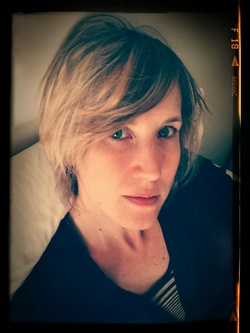
"The treachery and the authenticity of images" |
Bio: Katie Warfield is faculty in the Department of Journalism and Communication at Kwantlen Polytechnic University, Surrey BC. She is an authority on selfies in Canada and director of the Making Selfies/Marking Self Research Project, which explores the production and curation of selfies by diverse groups of young Canadian women. She teaches classes in communication theory, popular culture, and media and diversity. Her interests in interdisciplinary design and visual culture emerge from academic training and professional experience with cultural policy, cultural studies, architecture, urban design, and fashion design. Her interest in teaching and learning come from being a mother of two very curious children who are teaching her to look at the world in different ways every single day. She proudly integrates visual culture, post structuralism, phenomenology, and feminist theory into just about everything she teaches, writes, and says. Talk: We have always been fascinated with mirrors. From day one, perhaps the most fascinating toy for a child is a mirror. And the reason is both simple and complex: to be, is to reflect. But the conundrum is, that the part of ourselves we so desperately want to see (our face-the established icon of our identity) is the one part of our self we will never see with our own eyes. Katie's talk will explore our fascination with mirrors, especially with the rise of online identities, selfies, and Instagram culture. What do mirrors permit us to see? Why are mirrors so important in this day and age? And what amazing thing have I learned about what girls experience when they snap photos of themselves reflecting upon themselves that are intended to be shared with the world? |
Kent Mullinix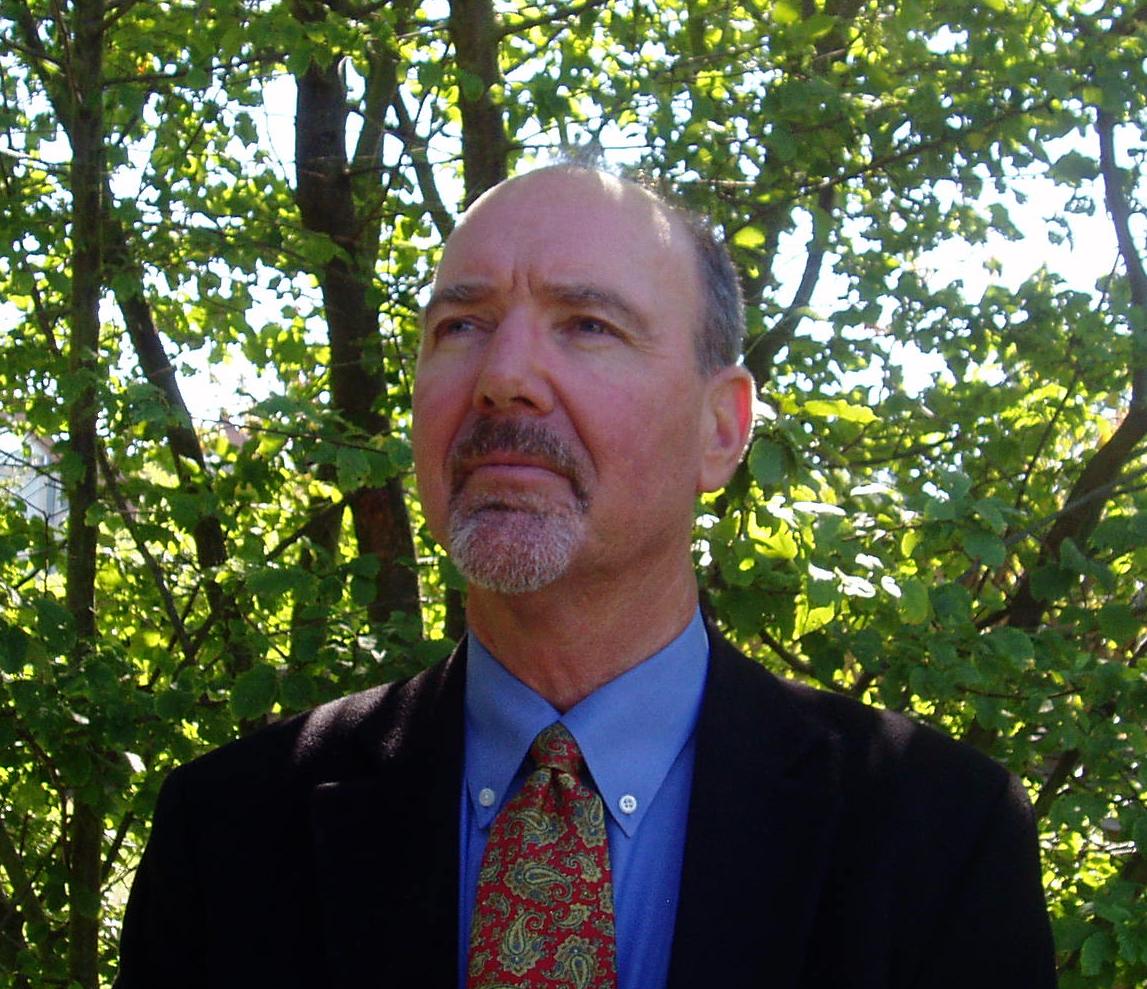
"Nourishing Land, People and Community: Unlocking the Potential of Place-Based Food Systems." |
Bio: Kent Mullinix is Director- Institute for Sustainable Food Systems at Kwantlen Polytechnic University where he works with a multi-disciplinary team conducting applied research to advance sustainable agriculture and food systems, as a foundational and integral element of sustainable society. Before joining KPU Mullinix held the Endowed Joint Chair in Pomology and was an Associate Professor, Department of Horticulture and Landscape Architecture, Washington State University. Prior he was a fruit and nut crops research specialist for the Universities of Missouri, Minnesota and Kentucky. Mullinix earned a B.S. in Agriculture M.S. in Horticulture and Ph.D. in Agriculture Education from the University of Missouri. He also earned a Ph.D. from the University of British Columbia in Plant Science. His agriculture specialization is deciduous tree fruit production. Mullinix has lived and worked on diversified farms and experiment stations, owned and operated (with his family for 15 years) a pear orchard on the eastern slopes of the Cascade Mountains, and for 14 years provided direct oversight for the planning, establishment and management of a 45 acre organically farmed apple, sweet cherry and peach teaching and research orchard in north central Washington. Talk: Sustainability is humanities supreme imperative. How we obtain our daily sustenance, is the foundation of our sustainability. Two opposing agri-food system paradigms, life-science intensive and ecologically intensive, are battling it out now in your community and around the globe. Both claim the sustainability high ground. There is much at stake. We will decide the outcome. To effectively envision and contribute to a sustainable food system future it is important to understand critical attributes and outcomes of the agri-food system which currently dominants as well as the challenges and opportunities present. To inform and encourage your sustainable food system thinking and action, in this talk, Kent will examine our contemporary western industrial agriculture and food system. He will offer his assessment as an agriculturist of nearly four decades and share what he and his team are doing to engage communities and bring about a life-place congruent, community focused, and municipally supported food system in southwest British Columbia to address our sustainable food system challenge and, as a model to the world. |
Lisa von Sturmer
"From MMA to Compost Queen: A Guide to Social Entrepreneurship" |
Bio: Having started her career in television working for an MMA fight show and other various creative agencies as an editor, Lisa von Sturmer realized that she wanted to spend her life doing something positive that had a tangible impact on the community. In 2010, she quit her successful editing career, founded Growing City and never looked back. Now an award-winning entrepreneur and official CBC Dragons’ Den Slayer and “Game Changer”, Lisa von Sturmer has founded and co-founded two companies and one non-profit in the past 4 years. She spends time speaking to youth groups and students on how to create businesses they love and shares the lessons she’s learned along the way. An active advocate for youth entrepreneurship, Lisa is a Canadian Delegate for the G20 Youth Entrepreneurship Summit where delegates from each G20 nation come together in tandem with the G20 to discuss policies governments can implement to encourage entrepreneurship as a solution to global youth unemployment. |
Mark Donnelly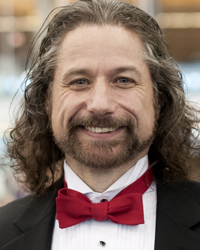
"Half the Man, Twice the Life" |
Bio: Mark Donnelly has been singing the Canadian Anthem at NHL hockey games for so long he is known as "Mr. O Canada." Married and the father of nine children, Mark spent most of his childhood and adult life struggling with his weight. Just before his fiftieth birthday, and tipping the scale at 370 pounds, he realized that if he didn't do something about his 62 inch waist, he wouldn't see his two year old son, Gregory, graduate from high school. After years of trying almost every diet available, he was at wits' end. Not having the resources to pay for a trainer or a pricey nutrition program, he was desperate, until his wife, Catherine, checked out from the library a book which revived a controversial diet from the 1950's. Armed with this weight loss protocol (which most doctors are convinced does not work) and an unquenchable desire to share in his son's future academic milestone, Mark embarked on a journey most people would consider a pipe dream: at the age of fifty, to lose 185 pounds (half his body weight)! What about his voice? "I didn't care," Mark says without hesitation. "I'm not going to be singing any operas if I'm six feet under!" As the weight quickly melted away, Mark acquired another dream: to play goal in ice hockey again. Developing his own training regimen, this dream became a reality less than two years after his "Gregory decision"! In July of 2012, Mark reached his target weight; more importantly, Mark has kept it off, though not without further trials and struggles. He has since become an avid (some say fanatical) squash player. Talk: In this inspiring presentation Mark shares his personal story of living a life of obesity to living a healthy life. With the rise of obesity in children today, he is passionate about motivating parents and children that there is hope and with the right motivation, goals can be achieved, to never give up. |
Dr. Tom Waller“Stretchy pants and marginal gains” |
Bio: Dr. Tom Waller joined lululemon to lead product innovation and R&D, in 2012. Shortly after his arrival, he established the group now known as Whitespace™ and built a world class R&D facility, the Whitespace™ Workshop, to reassert the intention of enhancing guest experience through unique, industry shifting activities, hence building on the legacy of the lululemon vision to elevate the world to greatness. Prior to joining lululemon, Tom was Head of Aqualab, Speedo's global R&D and innovation facility, where he led all Olympic projects for elite swimming as well as new product and material developments. This role followed several years directly servicing many of the world's largest sporting goods brands through his leadership of the consultancy arm of Progressive Sports Technologies, a spin off company at Loughborough University’s Sports Technology Institute, and multiple postdoctoral research projects as a member of the Sports Technology Research Group. Tom's combined commercial and academic experience, along with his specialist expertise in the application of technology for performance enhancement, has inspired a novel methodology for innovation. This has been regularly tested on the world stage with projects related to the Soccer and Rugby World Cup tournaments, the NBA, and also the British Triathlon, Cycling and Paralympic teams. Tom’s personal life is also dominated by sport, more specifically yoga, adventure racing and triathlon where he has competed up to Ironman distances. Talk: The unrelenting pursuit of marginal gains for elite athletes in all sports has demanded a constant search for technical breakthroughs that can deliver the 0.01 seconds, the ‘moments’ that define the difference between gold and silver, success and failure. Apparel has increasingly become a topic of focus and been attributed to phenomenal success in sports such as swimming, cycling and skiing. The controversy that follows in the context of technical doping and fairness is a fascinating area of debate, particularly when considering that, as well as fire, the fact that we cloth ourselves is a primary differentiator for the success of the human race as a species. Fundamentally this also challenges the reality that no technology can override, personal will and motivation and the holistic quest to becoming the perfect athlete. This talk encompasses the physiological, technical and psychological phenomena that leads to ultimate success.
|
Tu Diep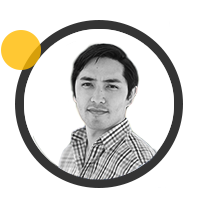
"The Miseducation of the Immune System" |
Bio: A father, a husband, a science nerd and all-around nice guy, Tu is a local Vancouverite geek now living in the beach and sun of Southern California. In his almost 10 years of working at the cutting-edge of scientific and clinical research, he has been able to apply his passion for science, and love of innovation, to gain a wealth of knowledge in the evolving world of immuno-oncology. He hopes to share what he has learned about the “miseducation” of the immune system, how this relates to cancer, and why the story of “Strange English Pigs” is so important to our current development of new cancer therapies. Tu lives in San Diego, California with his wife and two beautiful children. He is currently serving as Executive Director of Clinical Development for an innovative biotechnology company, OncoSec Medical Inc. He grew up in East Vancouver, and holds a Masters of Science in physiology from the University of Toronto. Talk: The reality of cancer is frightening. It is a disease that sneaks up on you when you least expect it, and it devastates your body through its insatiable need to divide, multiply and grow. For decades, our understanding of cancer was crude and not well defined, which led to equally crude and less defined modes of treatment. From disfiguring surgical methods, to lethal doses of toxic chemicals, our efforts to treat cancer were almost equally as disfiguring as the disease itself. However, we are now in a new dawn of cancer therapy. We understand that the underlying mechanisms that cause cancer are steeped in the ability of our own bodies natural defense system to recognize these mutant cells and destroy them. Today, there are a new class of drugs, called immunotherapies, that can modify and re-educate the immune system to find and destroy the cancer, resulting in impressive clinical results, and more importantly, giving hope to millions of people who have been, or will, be affected by this devastating disease. “The Miseducation of the Immune System”, is a talk that will explore the changing world of cancer therapy, the disruptive force of new immunotherapies, and the bright (and potentially not so bright) future of cancer treatments. |
Dr. Ross Laird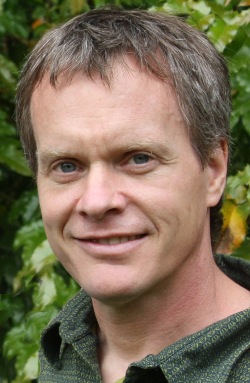
"Transforming Education from the Ground Up" |
Bio: Ross Laird, Ph.D. is a best-selling author, acclaimed educator, and award-winning scholar. He is a sought-after speaker on themes of personal and professional development, mentorship, leadership, addictions, mental health, and creativity. He is the founder of the Interdisciplinary Expressive Arts program — a fundamental re-imagining of the post-secondary experience — at Kwantlen Polytechnic University, where he also teaches digital culture and creativity. Dr. Laird has been a personal and professional development consultant to more than 100 organizations and has worked with more than a thousand individual clients, from Vancouver's Downtown Eastside to corporate boardrooms across North America. Talk: Educators have spent a good deal of time over the past few years thinking about (and wringing their hands over) the future of schools and education. We’ve focused mostly on technology, on the distribution of scarce economic resources, and on the changes wrought by an increasingly strategic and business-like approach to teaching and learning. We now have innumerable educational startups, alternative funding models, and methods of supporting or subverting (depending on your point of view) corporate interests. We’ve wrangled with these issues online, in our communities of scholarship, and in the public sphere. And we all agree on one thing: education is due for serious renewal and re-invigoration. But what that looks like is anyone’s guess. We just don’t know how the changes that lie before us will play themselves out, and this fundamental uncertainty has us either grappling toward a vision of total transformation or reaching back toward vanishing modes and practices. We are well and truly at sea. What we have not done — at least not in any widely-supported or deliberate manner — is to ask ourselves the simplest question of all: how would we build the educational enterprise from scratch? If we removed our legacies and biases, if we dismantled our assumptions and judgements, what would education look like? What would the forms of teaching and learning be if we did not try to build them atop crumbling structures that embody the values and norms of a diminishing age? What does it mean, in the world of today, for someone to be educated? Beyond employment strategies and economic aims, what is the purpose of an educational environment? What is the meaning and role of the learner, student, and teacher? What beliefs, bodies of knowledge, and learning approaches do we view as foundational? Is anything foundational? What is the role of institutions in this turbulent atmosphere? Where is it all headed? What should we do? All of these questions flow from the first: how would we build the educational enterprise from scratch? Answering this question is more important than preserving the heritage of education, is more crucial than figuring out the roles of teachers and institutions, and is more fundamental than all the economic and strategic arguments. How would we build the educational enterprise from scratch? This is what we need to ask, and we need to ask it now, during the moments in which transformation and renewal are most possible. The path forward for education lies not only in technology, nor in economic robustness, nor in the integration of education with market values and forces. No, the path forward involves breaking the whole enterprise down, rebuilding it with attentiveness to the essential qualities required for personal and professional development, and starting anew. This presentation explores what this might look like and how to do it. |
Dr. Salvador Ferreras
"The rhythm is going to get you." |
Bio: A member of the British Columbia Entertainment Hall of Fame, Dr. Salvador Ferreras is percussionist first and foremost but also a dedicated music educator and producer. His solo and collaborative work is heard regularly on national radio as performer, host and commentator on contemporary classical, traditional, and Latin American music. He has performed on a variety of highly acclaimed recordings ranging from rock to classical music, with such artists at the CBC Radio Orchestra, Viveza, Chicago, k.d. lang, Veda Hille, Michael Blake, Hedley, Robbie Robertson and Raffi. An active member of the community, Sal serves on the Board of Arts Umbrella, Rosario Ancer Flamenco Arts Society in addition to an active performing and recording schedule. Sal holds a PhD in Ethnomusicology from the University of British Columbia. Sal brings extensive academic and administrative experience to his role at Kwantlen Polytechnic University (KPU). Most recently, he was the Vice-President of Education and Student Services at Vancouver Community College (VCC). He has been an instructor at a number of Canadian post-secondary institutions including the University of British Columbia, Simon Fraser University, the University of Victoria and the University of Windsor. Talk: North American audiences have had, since the early decades of the 20th century, a conflicted relationship with Latin American culture and its place within the mainstream. Even though it has been decades since being “Latino” was anywhere near exotic in North America, our popular culture and our advertising campaigns still feature bizarre juxtapositions and cultural references that conflate distinct cultures into common and often ridiculous images and representations. Today, Latinos represent 17% of the US population, and in states like California and New Mexico they represent the largest ethnic group even beyond the so-called white population. In Canada, 1.2% of residents are of Latino origin by birth or ancestry. How has Latino culture insinuated itself into North American popular culture? One of the most effective ways has been through music and its portrayal in films, TV, radio and now other mainstream web-based media. Today’s Ted Talk will reveal some of the most influential musical “change agents” that made Latino culture palatable to a homogenous audience unfamiliar with its sounds and unaware of its ubiquitous presence in urban cultures. This talk will explore music as a catalyst, as a bridge, and as a proxy for acceptance and tolerance. Beginning with the then “controversial” I Love Lucy Show, through to Broadway’s West Side Story, and the eclectic New York-Miami-LA music scenes, Santana and Marc Anthony, the talk will uncover how a large part of our popular soundscape has been shaped and influenced by latino culture and how it got there. |